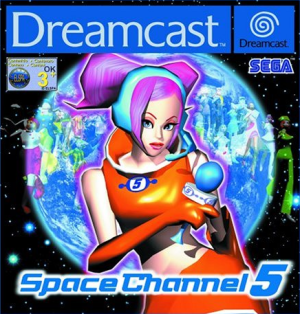
Space Channel 5 is a music video game developed by Sega AM9 and published by parent company Sega. Originally released for the Dreamcast, it was later ported to the PlayStation 2. A version for the Game Boy Advance (GBA) was published in 2003 as a Western exclusive. Following space-faring reporter Ulala as she investigates an alien invasion, players engage in rhythm-based combat where Ulala mimics the actions of rivals in time to musical tracks.

Tony Hawk's Pro Skater, released as Tony Hawk's Skateboarding in the UK, Australia, New Zealand and parts of Europe, is a skateboarding video game developed by Neversoft and published by Activision. It was released for the PlayStation on September 29, 1999 and was later ported to the Nintendo 64, Game Boy Color, Dreamcast, and N-Gage.
Alone in the Dark is a survival horror video game series originally developed by Infogrames. In most of the games, the player controls private investigator Edward Carnby, who goes to investigate a haunted house or town that is full of undead creatures.

Red Dead Revolver is a 2004 action-adventure game developed by Rockstar San Diego and published by Rockstar Games. It is the first entry in the Red Dead series, and was released for the PlayStation 2 and Xbox in May 2004. Set in the 1880s, during the American frontier, the single-player story follows bounty hunter Red Harlow's quest for revenge after the murder of his parents. A local multiplayer mode allows up to two players to face off against each other or AI-controlled bots in free-for-all battles.

MediEvil is an action-adventure hack and slash series of games developed by SCE Cambridge Studio and published by Sony Interactive Entertainment. The series revolves around an undead charlatan knight, Sir Daniel Fortesque, as he attempts to restore peace to the fictional Kingdom of Gallowmere whilst simultaneously redeeming himself. The first entry in the series, MediEvil, was released for the PlayStation in 1998 and was re-released on the PlayStation Network in 2007. Its direct sequel, MediEvil 2, was released for the PlayStation in 2000. The first game received two remakes, MediEvil: Resurrection for the PlayStation Portable in 2005 and MediEvil for the PlayStation 4 in 2019.
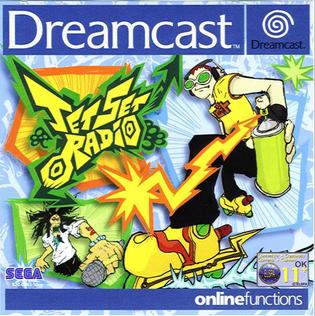
Jet Set Radio is a 2000 action game developed by Smilebit and published by Sega for the Dreamcast. The player controls a member of a youth gang, the GGs, as they use inline skates to traverse Tokyo, spraying graffiti, challenging rival gangs, and evading authorities.

MDK2 is a 2000 third-person shooter, action-adventure video game developed by BioWare and published by Interplay Entertainment for the Dreamcast, Windows and PlayStation 2. It is a sequel to the 1997 game MDK. First released for the Dreamcast in March 2000, it was later released for Windows in May, with newly selectable difficulty levels and the ability to manually save. In March 2001, a slightly reworked version, featuring level design modifications and gameplay tweaks, was released for the PlayStation 2 as MDK 2: Armageddon. The PC version was released on GOG.com in September 2008, and on Steam in September 2009. A port of the PlayStation 2 version was released for Wii via WiiWare in 2011. Also in 2011, a HD remastered version was released for Windows. Called MDK2 HD, this version features new 3D models, textures, improved lighting, and remastered music, and was released on Beamdog in October, and on Steam in July 2012.

Crazy Taxi is a series of racing video games that was developed by Hitmaker and published by Sega. The first game appeared in arcades in 1999 and was very successful, prompting Sega to port the arcade version to their Dreamcast console in 2000. It is the third best-selling Dreamcast game in the United States, selling over a million copies. The game was later ported to the PlayStation 2, Nintendo GameCube, and PC with sequels also appearing on the Xbox, Game Boy Advance, and PlayStation Portable systems.
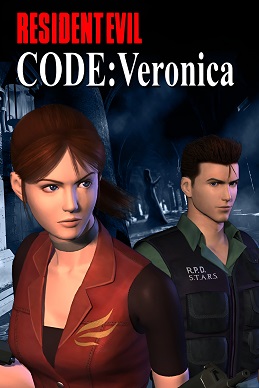
Resident Evil – Code: Veronica is a survival horror video game developed and published by Capcom and originally released for the Dreamcast in 2000. It is the fourth main installment in the Resident Evil series and the first to debut on a separate platform from the PlayStation. The story takes place three months after the events of Resident Evil 2 (1998) and the concurrent destruction of Raccoon City as seen in Resident Evil 3: Nemesis (1999). It follows Claire Redfield and her brother Chris Redfield in their efforts to survive a viral outbreak at a remote prison island in the Southern Ocean and a research facility in Antarctica. The game retains the traditional survival horror controls and gameplay of previous installments; however, unlike the pre-rendered backgrounds of previous games, Code: Veronica uses real-time 3D environments and dynamic camera movement.

Richard Adrian Jacques is a British composer of film, television and video game music. Best known for his critically acclaimed orchestral scores for blockbuster franchises such as James Bond 007: Blood Stone, Sonic R, Mass Effect, LittleBigPlanet 2, Alice In Wonderland, Starship Troopers and Headhunter, Jacques has collaborated with numerous premier TV and movie theatre campaigns for some of the world's largest media agencies including Saatchi & Saatchi and McCann Ericsson, and global brands such as Audi, Bacardi, Mercedes-Benz and Stella Artois. His music for television includes top brand shows for the BBC, ITV and Channel 4.

Headhunter is an action-adventure video game developed by Amuze for Dreamcast and PlayStation 2.

Resident Evil Outbreak is a survival horror video game with online playability for the PlayStation 2. Initially released in 2003, it was developed by Capcom Production Studio 1 and was the first entry in the Resident Evil video game series to feature cooperative gameplay and online multiplayer support, although online support was not available for the PAL versions of the game.

Headhunter Redemption is an action-adventure video game developed by Amuze and published by Sega for PlayStation 2 and Xbox. It is the sequel to Headhunter.
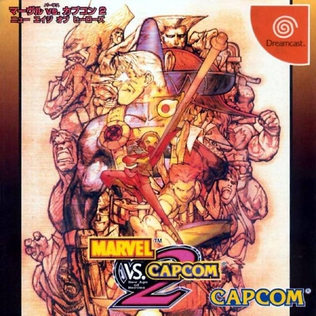
Marvel vs. Capcom 2: New Age of Heroes is a crossover fighting game developed and published by Capcom. It is the fourth installment in the Marvel vs. Capcom series, which features characters from both Capcom's video game franchises and comic book series published by Marvel Comics. Originally released in Japanese arcades in 2000, the game received ports to the Dreamcast, PlayStation 2, PlayStation 3, Xbox, Xbox 360, and iOS devices over the span of twelve years.

Maken X is a first-person hack and slash video game developed by Atlus for the Dreamcast. It was published by Atlus in Japan in 1999, while Sega localized and released the game overseas in 2000. Gameplay has the Maken—a sentient sword-like being—"brainjacking" or taking control of multiple characters across a variety of levels; combat is primarily based around short-ranged melee attacks, with some characters sporting additional abilities such as ranged attacks.

Genki Co., Ltd. is a Japanese video game developer. It was founded in October 1990 by Hiroshi Hamagaki and Tomo Kimura, who left Sega to form the company. The company is best known for its racing game titles.
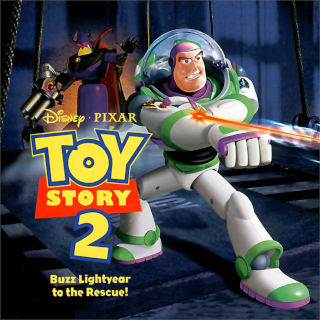
Toy Story 2: Buzz Lightyear to the Rescue is a platform game based on Pixar's 1999 computer animated film Toy Story 2. It was released for the Nintendo 64, PlayStation, Microsoft Windows, and Macintosh in late 1999, while a Dreamcast version followed in 2000. The computer versions were released under the title Disney/Pixar's Action Game, Toy Story 2. A different version, a side-scrolling platform game titled Toy Story 2, was also released for the Game Boy Color in 1999.

Prince of Persia is a video game franchise created by Jordan Mechner. It is built around a series of action-adventure games focused on various incarnations of the eponymous Prince, set in ancient and medieval Persia.

Space Channel 5: Part 2 is a music video game developed by United Game Artists. A direct sequel to the 1999 game Space Channel 5, the game was published for Dreamcast and PlayStation 2 in Japan in February 2002 by Sega. The PS2 version released worldwide in 2003 by SCEE and Agetec. The game later received a high-definition port to Microsoft Windows, Xbox 360 and PlayStation 3 in 2011 from Sega.

Resident Evil Survivor 2 – Code: Veronica is a light gun shooter video game developed and published by Capcom as part of the Resident Evil series. The arcade version was developed in conjunction with Namco for the arcade machines. The game was released for Sega NAOMI and PlayStation 2. It was released on the PlayStation 2 on November 8, 2001 in Japan and in Europe on March 22, 2002. The game is the second installment in the Gun Survivor series and the sequel to Resident Evil Survivor. The game is adapted from Resident Evil – Code: Veronica and features enemies and characters from that game, and enemies from Resident Evil 2 and 3. It was followed by Dino Stalker which is a spin-off of Dino Crisis, and has no ties to Resident Evil.

















